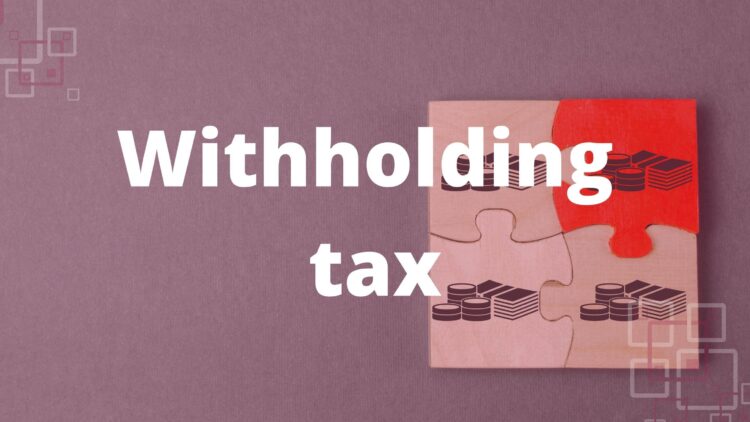Relocating to Switzerland comes with many advantages, but there are also legal and financial aspects to consider, including tax obligations. For those moving to Switzerland, navigating the system is important. It’s essential to understand how income is taxed, what allowances exist, and the role of both federal and cantonal taxes. Let’s break down the key aspects so anyone moving to Switzerland can manage the process confidently.
Table of Contents
Key Points:
- Switzerland’s taxes system involves federal, cantonal, and municipal taxation.
- Each canton has different rates and allowances.
- Income and wealth are subject to taxation.
- Filing a taxation return is mandatory for certain residents.
- Swiss laws provide allowances and deductions based on family status and other factors.
The Swiss Tax Structure: Federal, Cantonal, and Municipal

Switzerland operates a three-tier tax system. Residents must account for federal, cantonal, and municipal taxes. Each canton sets its own rates, and they differ significantly across the country. Cantonal rates often make a significant difference in the overall burden for residents.
Cantons like Zug or Schwyz are known for lower taxation rates, attracting high-net-worth individuals. On the other hand, cantons like Vaud or Geneva impose higher rates. Municipal taxes also vary from city to city. Those planning to move to Switzerland should research the specific rates in the canton they intend to reside in. It’s often wise to consult with a local expert to avoid surprises.
Income and Wealth Taxation in Switzerland
In Switzerland, residents are taxed based on their worldwide income, although certain exemptions apply depending on bilateral agreements between Switzerland and other countries. Income taxation in Switzerland encompasses wages, business profits, pension benefits, and other income sources. It is important to note that Switzerland’s wealth taxation applies to the total net worth of an individual, including property, savings, and investments.
Foreigners with Swiss residency permits, particularly those on high incomes, should be mindful of wealth taxes. Switzerland has a progressive wealth system, meaning that individuals with higher net worth face steeper rates. However, various deductions and allowances can reduce the taxable base.
Filing a Tax Return in Switzerland
Filing a tax return Switzerland requires reporting income, deductions, and allowances. Simpletax, a company active in Swiss tax administration, helps with this process by providing a checklist for filing taxation returns.
Those who are employed and earn above a specific threshold must file a tax return every year. Additionally, individuals who own real estate or have investments are required to report these assets. Keeping documentation organized is critical, and consulting professionals is advisable to avoid mistakes.
Allowances and Deductions: Reducing the Tax Burden

Swiss laws offer several deductions to reduce taxable income. Families, for example, can benefit from child allowances. Mortgage interest, donations, and insurance premiums can also be deducted in some cases. Different cantons may offer specific deductions, so residents should familiarize themselves with the regulations where they live.
There are also personal allowances depending on marital status. Single individuals, married couples, and families are treated differently under Swiss laws. A person’s family status and number of dependents directly affect the final amount of tax payable.
Cantonal Differences in Tax Rates
The decision of where to live in Switzerland can dramatically impact how much tax someone pays. For instance, Zug is known for having very low rates, while Geneva is on the higher end of the spectrum. Before moving, it’s a good idea to compare the rates of different cantons. Consulting a local tax advisor familiar with each canton’s rules can help individuals optimize their financial situation.
For high-net-worth individuals, there is a unique lump-sum taxation option. This method allows wealthy foreigners to negotiate a flat-rate based on living expenses rather than actual income or wealth. However, this is only available in certain cantons and requires specific residency permits.
Double Taxation Agreements and International Considerations

For expatriates moving to Switzerland, double taxation agreements between Switzerland and other countries help prevent paying taxes on the same income in two countries. It’s important to review these agreements to understand how income earned abroad is treated by Swiss tax authorities.
Foreign income can also affect taxation rates in Switzerland, as it may push a person into a higher bracket. To avoid complications, those with income sources in different countries should seek expert advice. Swiss advisors can help ensure that expatriates take full advantage of double taxation treaties while remaining compliant with local rules.
Table: Cantonal Income Tax Rates (2024)
| Canton Average | Income Tax Rate (Single) | Average Income Tax Rate (Married Couple) |
| Zug | 6.5% | 4.5% |
| Zurich | 11% | 7.8% |
| Geneva | 15.9% | 12.5% |
| Vaud | 14.5% | 10.9% |
| Schwyz | 7.3% | 5.4% |
Withholding Tax for Foreign Employees

Foreign employees living in Switzerland without permanent residency permits are often subject to withholding taxes. This is automatically deducted from their salary at source. The rate depends on the canton where they work, and it’s typically higher for non-residents.
However, if their annual salary exceeds a certain threshold, they may need to file a taxation return at the end of the year to reconcile any differences. In some cases, filing can result in a refund if the withholding tax exceeds the actual liability. Foreign workers should keep accurate records of their earnings and deductions throughout the year.
Lump-Sum Taxation: A Unique Option for Wealthy Foreigners
Certain foreigners moving to Switzerland can benefit from lump-sum taxation. This method is negotiated based on a person’s living expenses rather than their actual income or wealth. It’s attractive for high-net-worth individuals, but not all cantons offer this option.
Lump-sum taxation applies primarily to those without Swiss citizenship and requires holding a specific residency permit. For those eligible, this option can significantly reduce tax obligations. However, it’s essential to consult with a professional advisor to navigate the requirements and ensure compliance with local laws.
Conclusion

Switzerland’s tax system is complex, but understanding the basics helps avoid unnecessary issues. The three-tier taxation structure, allowances, and cantonal differences all play significant roles in determining how much tax someone pays. For anyone considering moving to Switzerland, proper planning and advice are key.
FAQs
1. What are the tax brackets in Switzerland?
They are progressive, meaning rates increase with higher income. Each canton has different tax brackets.
2. Do foreigners pay more tax than Swiss citizens?
Foreigners without permanent residency are subject to withholding taxes, but they are not necessarily taxed more than Swiss citizens. They may qualify for the same deductions.
3. Is wealth taxed in Switzerland?
Yes, Switzerland imposes a wealth taxation on total net worth, including property, savings, and investments.
4. Are there tax benefits for families in Switzerland?
Yes, families can claim allowances for children, as well as deductions for educational expenses and certain insurances.
5. How do I file a tax return in Switzerland?
Residents file it annually. Consult local experts for accurate submissions.
By covering these essential points, individuals planning to move to Switzerland can make informed decisions about their financial obligations and ensure compliance with the local tax laws.
